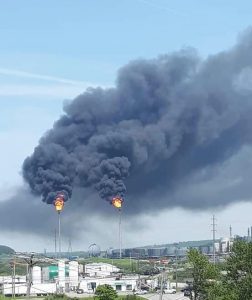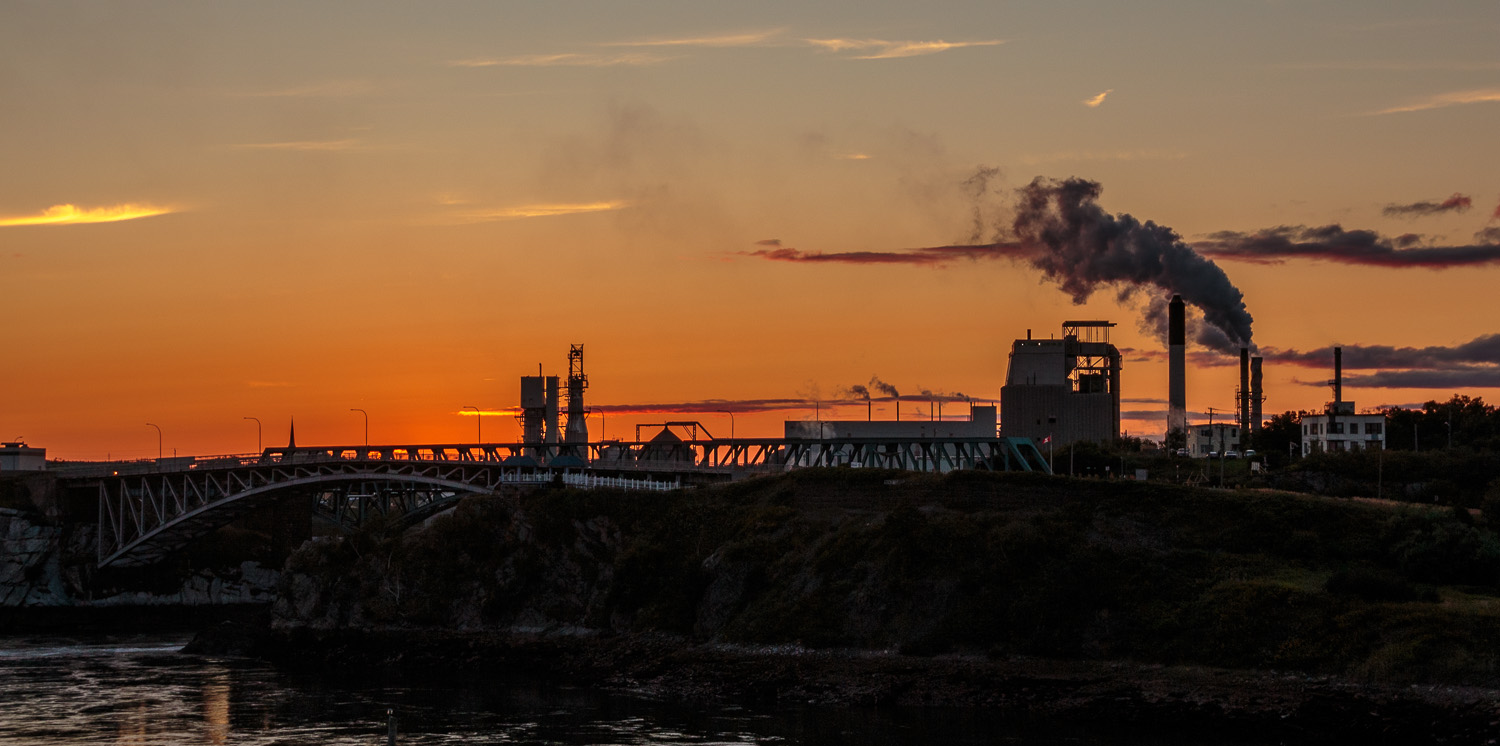These are the comments of the New Brunswick Anti-Shale Gas Alliance on the province’s proposed Output-Based Pricing System (OBPS).
Our organization recently intervened in the Saskatchewan Court of Appeal reference case on carbon pricing (as a member of the umbrella group, ‘Climate Justice, et al.’). We intervened on the side of the federal government. We did so, not because we were thrilled with the federal plan, which is far from perfect, but because it had become obvious that provincial governments appeared to not comprehend the immediacy or seriousness of the approaching climate crisis.
Unfortunately, we are sad to say that New Brunswick’s proposed OBPS validates our observations and concerns.
Both the Saskatchewan decision and subsequent Ontario Court of Appeals decision validated that climate change is a planetary emergency that must be dealt with by governments at all levels. The seriousness of the language in the justices’ decisions is in stark contrast to the weakness of New Brunswick’s proposals.
An annual reduction of 0.85 per cent in the proposed performance standard is too low to drive either behavioral change or industry innovation. Indeed, the federal standard itself is too low, but New Brunswick’s rate is negligible.
Likewise, the province’s rebate rates and small percentage of emissions covered will excuse the biggest polluters in the province from paying for their fair share for their pollution and remove any incentive for innovation. The province’s rationales for these low rates and percentages appear to be specious or without merit.

Irving Oil Refinery, Saint John. Photo Susan Eadle
We feel that any reasonable plan should have the following, as a minimum.
- If a made-in-New Brunswick plan is what is desired, then an OBPS should be robust enough to generate funds for energy transition programs. The provincial Climate Action Plan had many good ideas, and they should be funded and implemented. Several recent polls in North America (and one in New Brunswick) have found that people prefer that money generated from carbon pricing plans should go towards programs to prevent or mitigate climate change.
- Energy efficiency and renewable energy continue to convincingly demonstrate worldwide that they are the real paths to lower utility bills for consumers, not adjusting abstract ‘rate’ numbers. As the grid is ‘greened’, the electrification of everything, especially in the transportation sector, will result in ever growing reductions in emissions. This will require that coal generation be phased out as quickly as possible, followed by oil. Our province needs to require that the utility and large polluters develop plans to makes this transition as quickly as possible.
- The large polluters in the province must be held accountable for their pollution. While some accommodation may be made for competitive reasons, the proposed plan lets them off the hook almost entirely.
A 2018 study published in the journal Nature Communications ranked Canada among countries with the world’s least effective climate policies. The study found that if Canada’s policies were adopted worldwide, global temperatures would rise by a disastrous 5.1°C by the end of the century.

Irving Pulp and Paper Mill, Saint John, NB (Photo D. Carr)
Canada is the 9th leading producer of greenhouse gas emissions, and per capita is always in the top 3 countries. Similarly, New Brunswick has the third highest per capita emissions in Canada, after Alberta and Saskatchewan. Thus, arguments that we are so small, or that others aren’t pulling their weight, or another province got a better deal are unseemly, as our emissions will make life miserable for others in the world who have almost no responsibility for causing climate change.
In our comments we have not made reference to specific dates, such as goals for 2030. We instead have used the phrase, ‘as soon as possible’. We did so for good reason. The last IPCC report used the 2030 date as the marker for when we will have had to have made significant emissions reductions or potentially face runaway climate change.
However, since that report, both continued scientific study and world events lead to the conclusion that 2030 may be an optimistic forecast. Things need to happen now and they need to be significant. Similarly, the goals for emissions reductions for both New Brunswick and Canada are inadequate, and do not reflect current science.
We fear that the provincial governments (and others) have not grasped this reality. In New Brunswick we are discussing a very minimal climate plan, while at the same time contemplating a shale gas industry, an LNG export facility and a bitumen pipeline – any of which would single handedly make it impossible for us to meet any climate target.
The World Health Organization has called the climate crisis the greatest threat to public health, and last week the UN reported that a climate disaster occurs every week, somewhere in the world – costing $520 billion per year. That is what should be on your minds as you design policy, programs and standards.
But we are commenting in good faith in the hope that political motives and corporate interests will eventually have to give way to reality.
In the meantime, we find that the current New Brunswick plan should not be accepted by the federal government, as it solves none of the problems it is intended to address. We cannot face this challenge with the idea that somehow it will be solved without requiring any changes or costs. Please produce a serious plan that is commensurate with this reality.
Sincerely,
Jim Emberger, Spokesperson
New Brunswick Anti-Shale Gas Alliance
